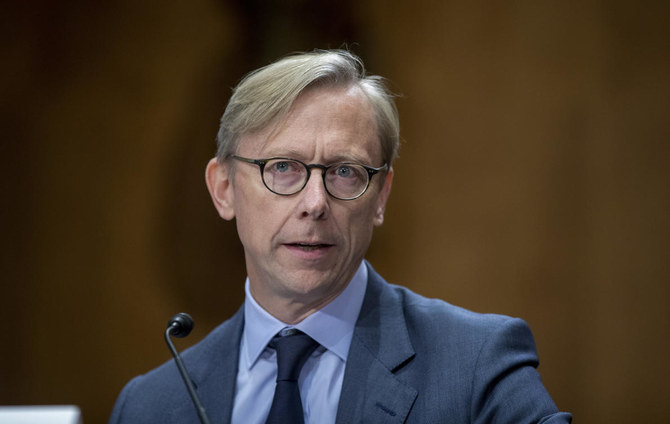DUBAI: The US special representative for Iran said the successor to Qassem Soleimani, who was killed in a US drone strike, would suffer the same fate if he followed a similar path of killing Americans, Asharq Al-Awsat newspaper reported.
Washington blamed Soleimani for masterminding attacks by Iran-aligned militias against US forces in the region. US President Donald Trump ordered the Jan. 3 drone strike in Iraq after a build up of tension over Iran’s nuclear program.
Iran responded to the killing of Soleimani, who was charged with expanding Tehran’s influence across the Middle East, by launching missile strikes on US targets in Iraq, although no US soldiers were killed.
After Soleimani’s death, Tehran swiftly appointed Esmail Ghaani as the new head of the Quds Force, an elite unit in the Revolutionary Guards that handles actions abroad. The new commander pledged to pursue Soleimani’s course.
“If (Esmail) Ghaani follows the same path of killing Americans then he will meet the same fate,” Brian Hook told the Arabic-language daily Asharq Al-Awsat.
He said in the interview in Davos that US President Donald Trump had long made it clear “that any attack on Americans or American interests would be met with a decisive response.”
“This isn’t a new threat. The president has always said that he will always respond decisively to protect American interests,” Hook said. “I think the Iranian regime understands now that they cannot attack America and get away with it.”
After his appointment, Ghaani promised to “continue in this luminous path” taken by Soleimani and said the goal was to drive US forces out of the region, which has long been Iran’s stated policy.
Tensions between Washington and Tehran have steadily increased since Trump withdrew from Iran’s nuclear deal with world powers in 2018 and imposed tough news sanctions that have hammered the Iranian economy.
This month’s military flare-up began in December when rockets fired at US bases in Iraq killed a US contractor. Washington blamed pro-Iran militia and launched air strikes that killed at least 25 fighters. After the militia surrounded the US embassy in Baghdad for two days, Trump ordered the drone strike on Soleimani.



























